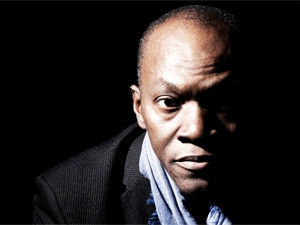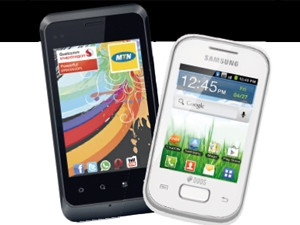
A few months ago, I chatted to a top telecoms executive about a new development in the market: Afrihost's mobile broadband router and aggressive pricing strategy. The executive commented positively on this and we could both envision an aspirant coder in the townships finally connect to the online world. I didn't have the heart to tell him that I know such a guy - and that even at Afrihost's prices, he has no hope of affording a functional connection online.
Much is being written about Africa's rise, pinned by the fact that mobile phones have exploded in numbers. There were roughly 600 000 mobile phones in Africa around the mid-'90s - today, the figure stands at over 750 million. The continent leapfrogged fixed-line connectivity and got its people online through mobile devices. This has resulted in some great successes, such as the rapid technification of Rwanda, and Kenya's mobile money monolith known as M-Pesa.
South Africa, unfortunately, does not qualify. Despite very high mobile penetration - more than one phone per citizen - it falls behind many of its African peers. According to a 2010 report by World Wide Worx, more than 50 percent of SA's urban population has the right phones for browsing, but only a third does so. Instant messaging is even lower - less than half of the 10.5 million South Africans capable of using such services actually do. Online retail remains a niche sector and despite a high mobile penetration rate, the country has failed to reflect adequate use of mobile connectivity.
The mobile duopoly
What is going on? Why is a country with major telecoms advantages falling behind the rest of the continent? Well, the simple answer is readily apparent: we're paying too much for mobile services.
That said, the simple answer isn't the whole story. Still, it's not hard to see who everyone is accusing: two well-entrenched mobile network giants and one dysfunctional regulator.
Right 2 Know is one of these accusers. The NGO, better known for its fight for more governmental transparency, has taken on the cause of high mobile costs.
"It was the issue of access to the internet and telecoms networks that people felt most passionate about," says R2K's Mark Weinberg. And he lays the blame on the mobile networks: "We referenced every international comparative study available, and all showed that South Africans pay exorbitant charges to access mobile networks."
Indeed, it's not hard to find such studies. A Research ICT Africa report ranks SA as 16th on the continent in terms of expensive prepaid mobile prices, while a World Economic Forum report places the country at 118 out of 144 for cheapest mobile data costs. Individual profiteering is also obvious: according to analysts at Electus, Vodacom customers pay a nine-time premium on the base costs of their phone calls. Another analyst notes that both Vodacom and MTN enjoy profit margins of 17 to 22 percent - well above the industry standard of ten to 15 percent.
The two giants have hit back, supplying their own report that claims a very different picture. But no one's convinced.
"While it's true that complex pricing structures make comparisons difficult," says Weinberg, "the reality that SA consistently features among the most expensive services in the world cannot be a coincidence."
Share price
But is it fair to lay all the blame at the duopoly's doors? In a column on MyBroadband, Rudolph Muller hit back at R2K's calls for direct intervention on mobile pricing. Such meddling does not work, he wrote, and asks whether it's right to punish companies just because they're good at what they do. These are fair points. The high revenues aren't simply a matter of greed, either: mobile networks are expensive and companies reinvest a lot of their profits into these upgrades. Points in case are the massive fibre networks created by conglomerates that include the two giants, not to mention the legal action against Telkom that opened the gate for such networks.
We referenced every international comparative study available, and all showed that South Africans pay exorbitant charges to access mobile networks.
Mark Weinberg, R2K
In answering questions for this feature, Vodacom stated that in the past six years, it 'invested more than R30 billion in network infrastructure in South Africa'. This includes 3G, which requires licensing and other costs. MTN responded with similar figures: R26 billion over the past five years.
Ultimately, this recalls the tale of the frog and scorpion, where the latter stings the frog even though it promised not to. When asked why, it replied: "Because I'm a scorpion." Vodacom and MTN are businesses and cannot simply change course for the sake of society. Like it or not, they are beholden to stockholders: when regulator Icasa announced cuts to mobile termination rates, both companies experienced a drop in their share price. Messing with the formula has real consequences for the corporations involved and the financial ecosystems they sustain.
Of course, claiming capitalism is not enough to convince anyone there's no problem. The reality is that the longer mobile connectivity is out of its citizens' reach, the more South Africa will suffer. As R2K puts it, should we leave such a basic service in the hands of shareholders? It's obvious that government has a role to play here, bringing us to the other problem in the scenario: the regulator.

Icasa has a reputation as an inefficient and toothless industry lapdog and there's general agreement that the current situation has everything to do with its non-action. It notoriously failed to act against the Telkom monopoly, which bears more than a few similarities to the mobile problem.
In recent years, Icasa has been pushing a few positive changes, mainly going after the rates that determine connectivity between mobile providers. Historically such action has been effective in fostering lower prices. But local companies are slow to translate any savings towards consumers and Icasa's action is not all that encouraging: it is taking over four years to reduce the mobile termination rate from above 50 cents to around ten cents. Namibia, once one of the continent's priciest markets, accomplished that in two years. It is now third-cheapest in Africa.
The golden path
"It's all incestuous," says Koffi Kouakou, Africa analyst and senior lecturer at Wits University. "You have mobile industry people working at the regulator, you have government fingers in mobile industry pies. Nobody is interested in affecting real multiplier effect change." Kouakou is even more of a firebrand than R2K: the mobile situation is effectively destroying South Africa's economic future.
"I think it's downright irresponsible. These companies make so much money, but nobody cares that many in South Africa cannot afford their services."
Even though some commentators say that connectivity is not a right, people like Kouakou argue that it should be. Considering the huge economic implications of getting a nation connected, it's more than a fair point.
The reality is that the longer mobile connectivity is out of its citizens' reach, the more South Africa will suffer.
So, what are we to do? Icasa has finally engaged in plans that will curb the cost controls that MTN and Vodacom hold over the market, although not without potential legal action from the two giants. Unfortunately, such dragging of feet - legal or otherwise - is too common an occurrence and certainly questions the networks' assertions that they are prioritising better pricing.
There is a further glimmer of hope in the emergence of cheaper smartphones. BlackBerry declined to comment on subscriber numbers, but its BlackBerry Internet Service (BIS) continues to be a cost-effective way to access the internet, enough for it to continue supporting robust sales of BIS-compatible BB7 phones in the market, despite a strategy to back the newer (and BIS-incompatible) BB10. Samsung has also met demand with the Galaxy Pocket (it declined to reveal sales numbers) and recently MTN launched the super-cheap Steppa phone, certainly a point towards its argument that its profits are being reinvested towards a brighter future. Lenovo and Huawei are also entering the cheap handset race.
Competition
Ultimately, it may come down to competition. Cell C, South Africa's number-three operator, has been making waves with its 99c promotion, which offers lower rates, although not by a huge margin. According to Jose Dos Santos, acting CEO at Cell C, the goal is to reduce charges but also bring an end to confusing and convoluted pricing packages - a big reason why it's hard to gauge just what we're supposed to pay for mobile services. There has been an impact: Cell C grew its prepaid market share by five percent last year, while Vodacom and MTN both experienced reductions. MTN, considered the most expensive in SA, had the biggest drop. But those were marginal and many argue that the two big operators are too entrenched for serious change to happen.
The smoking gun
Then there's Afrihost. The ISP is known for being a price disrupter: it singlehandedly ended years of fixed-line bandwidth exploitation by sparking a price war that, among other things, brought uncapped services into practice. Since becoming a client of MTN's vast network, it has been working to do the same with mobile bandwidth - R99 per gigabyte, less than 10c a meg. This is done by subsidising costs and ultimately recruiting enough customers to have wholesale muscle.
People are ready and hungry for data, but they cannot afford it in any meaningful quantity.
Afrihost says it's doing this because mobile broadband is a fast-growing market, especially since it circumvents the setup costs of fixed-line broadband: "Our aggressive entry into the market is more about our brand than a specific strategy. Our brand is known for 'price disruption' within the broadband space, so we wanted to make sure that our clients felt we stayed true to what they have come to expect from us."
Late last year, Afrihost embarked on an aggressive campaign to up its mobile customer base and build that wholesale muscle.
Is this enough? Obviously MTN and Vodacom would prefer a gradual slide towards lower prices and, considering the answers submitted for this feature, few disagree - at least on the record. More aggressive overtures by Icasa are encouraging, but nobody is holding their breath. Overall, there remain two narratives: one that says everything is okay and the other disagreeing in quite strong terms. Analysts lambast the situation with anger, and comments by consumers are outright vitriolic. Perhaps changes in the regulation landscape will yield fruit, but critics are quick to remind us that South Africa should be in the lead. Catching up is not good enough for the country's future prosperity.
As said before, the answer is not simple. So perhaps a smoking gun is more apt - and it can be found on a Friday rush hour afternoon, on the Helen Joseph Hospital platform of the Rea Vaya service. Spending over 20 minutes on the platform to count how many people (almost all blue collar workers on their way back towards the city's west) used their phones yielded a result of one. Yes, it's not a scientific poll. But it also seems odd, given all the proclamations that we spend too much time with our devices (and the buses were running very late - perfect for mobile frolicking). The poorer of SA's people appear not to. The argument that there's a lack of device education is rubbished by contrary evidence. People are ready and hungry for data, but they cannot afford it in any meaningful quantity.
Share